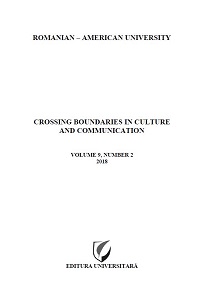Importanţa componentei culturale în predarea
limbii române ca limbă străină
The Importance of the Cultural Component in Teaching Romanian as a Foreign Language
Author(s): Ana Mihaela IstrateSubject(s): Social Sciences, Language studies, Language and Literature Studies, Education, Foreign languages learning, Applied Linguistics, Communication studies, Language acquisition, Sociolinguistics, Adult Education, Higher Education , Educational Psychology, Distance learning / e-learning
Published by: Editura Pro Universitaria
Keywords: Romanian language as a foreign language; teaching methods based on communication; English as a support language; culture shock;
Summary/Abstract: The present study represents an analysis of the methods used by teaching staff of the Romanian - American University, during the three years of teaching, at the Foundation Year of Romanian language as a foreign language. In a constantly growing market with a growing demand, especially for preparing future students for medical programs, the article follows the evolution of the international students, who enrol in the program with an A1-A2 level of English language knowledge, which raises the question of the type of teaching: with the help of English as support language, or directly in the Romanian language, by the immersion method in the new language of study. Considering also the cultural differences existing between learners, which affect in a way dramatically acquiring a language with an extremely different grammar and difficult at the same time, we will turn our attention to the importance of cultural elements, highlighting the similarities between cultures, which allow an easier transition to the new language and culture.
Journal: Crossing Boundaries in Culture and Communication
- Issue Year: 9/2018
- Issue No: 2
- Page Range: 169-175
- Page Count: 6
- Language: Romanian

